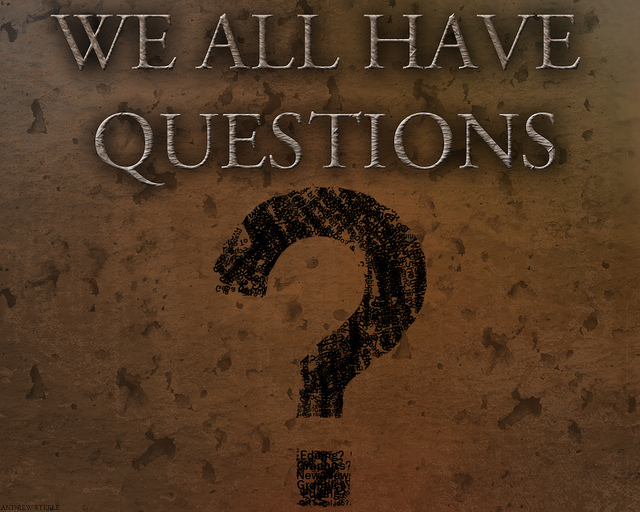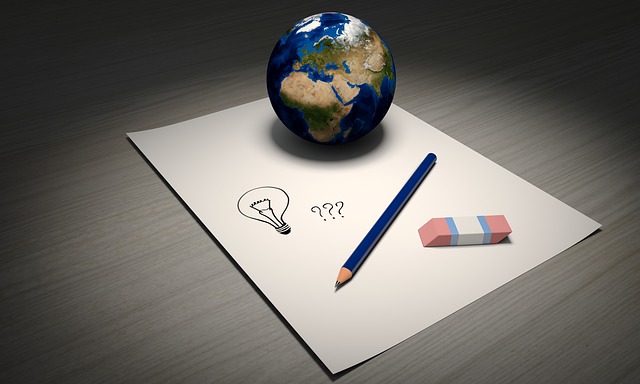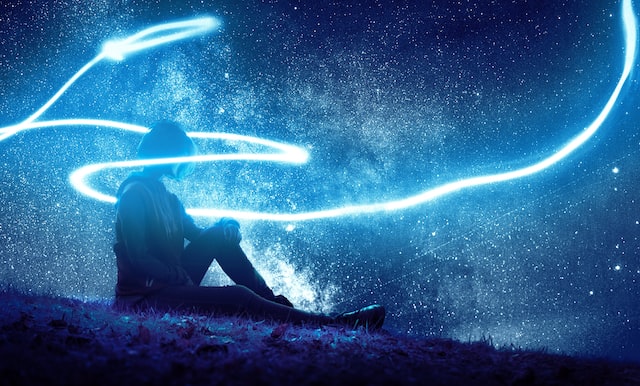Humanity has all the time sought to outline, measure, and perceive the world round us. Time, area, identification, and actuality—these ideas form our lives, give construction to our days, and tether us to a collective understanding of existence. However what if these constructs are extra fragile than we predict? What if, by measuring and labeling, we restrict the very essence of our expertise?
Let’s peel again the layers of what we “know” and ask ourselves some thought-provoking, stimulating questions.
If People Didn’t Measure Time, Would We Develop Older?
Time is likely one of the most elementary elements of human actuality. We dwell by calendars, clocks, and deadlines. However what’s time, actually? It’s not one thing we are able to contact or maintain—it’s a assemble we invented to arrange expertise and predict change.
If we didn’t measure time, would we understand getting older the identical method? Would wrinkles and grey hair nonetheless sign “getting older,” or would they merely be completely different states of being? In cultures the place age is well known fairly than dreaded, folks typically report feeling youthful. This raises the query: Does the best way we measure and take into consideration time speed up the getting older course of? May eradicating the idea of time shift our notion of life itself?
Are We Actually Separate People—or Are We One Collective Organism?
We see ourselves as distinct beings, separated by pores and skin and bone, with distinctive minds and experiences. However what if this separateness is an phantasm?
Take into account the idea of the “hive thoughts” in ants or bees. They function as a collective, every particular person fulfilling a job in service of the entire. Now take into consideration humanity: we share sources, concepts, cultures, and feelings. The web has related us in ways in which mimic a world mind, exchanging data at lightning pace.
If consciousness exists on a spectrum, might or not it’s that we’re all a part of a singular, collective organism? If that’s the case, what occurs to the idea of individuality? What if “I” is only a non permanent phantasm designed to assist the bigger system operate?
What If Actuality Itself Is a Simulation?
The concept actuality is perhaps a simulation isn’t simply science fiction anymore. Philosophers and scientists like Nick Bostrom have argued that, statistically talking, it’s extra possible than not that we’re dwelling in a computer-generated universe.
If that is true, each expertise we’ve had—the style of espresso, the heat of the solar, the ache of heartbreak—could possibly be nothing greater than programmed information. However right here’s the paradox: if our experiences really feel actual to us, does it matter in the event that they’re “actual” in an absolute sense? What if the aim of life isn’t to query the code, however to dwell totally inside it?
Is Free Will an Phantasm?
Each alternative we make feels prefer it’s ours, born of free will. However neuroscience has repeatedly proven that selections are sometimes made within the unconscious mind earlier than we consciously understand them. Are we actually in management, or are we passengers in a fancy machine of biology and atmosphere?
If free will is an phantasm, how does that change our understanding of morality, accountability, and objective? Would we really feel liberated by this data, or trapped in a deterministic system?

Do We Form the Universe, or Does the Universe Form Us?
Quantum mechanics teaches us that the act of commentary impacts actuality. Electrons behave in another way when they’re being watched. This means that consciousness isn’t only a passive observer of the universe—it’s an lively participant.
If our minds can affect matter on the quantum stage, what does that imply for our means to form actuality? Are we much more highly effective than we’ve ever imagined? Conversely, what if the universe is shaping us, nudging our ideas and actions to suit into its grand design?
What If Dying Is Not the Finish?
Most human fears revolve across the idea of loss of life—the last word unknown. However what if loss of life isn’t the top of consciousness?
Take into account this: after we sleep, our consciousness doesn’t disappear; it shifts right into a dream state. May loss of life be an analogous transition, from one type of existence to a different? Some physicists counsel that vitality can’t be destroyed—solely remodeled. What if our consciousness is vitality that merely takes on a brand new kind?
What If Language Limits Actuality?
Language is how we outline the world. However what if it’s additionally how we restrict it? There are ideas that don’t exist in some languages—feelings, concepts, and sensations that may’t be translated.
If we didn’t have phrases like “failure” or “remorse,” would we really feel these issues as deeply? If we had extra phrases for love, might we categorical it in richer methods? What if actuality isn’t restricted by what exists, however by what we are able to describe?
Is Our Notion of Actuality Only a Mirror of Ourselves?
Lastly, what if the world we see is just a mirrored image of who we’re? Once we really feel pleasure, the world appears brighter. Once we’re indignant, every part seems to be hostile.
May or not it’s that actuality itself doesn’t exist independently, however solely as a projection of our internal state? If that is true, altering the world is perhaps as easy—and as advanced—as altering ourselves.

Let’s Deep Dive into The Mysteries of Sleep: Does Our Consciousness Return to the Supply?
Sleep is likely one of the most mysterious and interesting elements of human existence. Each evening, we willingly give up to an unconscious state, slipping right into a realm the place time, logic, and bodily actuality appear to dissolve. However what occurs to “us” after we sleep? Does our consciousness merely relaxation, or does it journey past the bodily? May sleep be greater than a organic necessity—maybe a non secular journey again to our “supply”?
Let’s discover these intriguing potentialities.
The Nature of Consciousness: The place Do We Go When We Sleep?
To know what occurs throughout sleep, we should first grapple with the character of consciousness. Our waking self is outlined by ideas, recollections, and sensations, all of which appear to dissolve after we sleep. But, even within the deepest levels of sleep, our physique continues to operate. The center beats, the lungs breathe, and the mind stays lively.
However what about our sense of “self”?
Within the fast eye motion (REM) stage of sleep, we dream—a state the place the unconscious thoughts weaves collectively photographs, symbols, and feelings. Throughout non-REM sleep, nonetheless, there’s little to no psychological exercise. This absence of aware thought raises a profound query: The place does our sense of self go throughout these moments of complete stillness?
Sleep as a Return to the Supply
One principle is that sleep serves as a form of homecoming—a brief return of our consciousness to its authentic supply. In lots of non secular traditions, the “supply” is described as an infinite area of vitality, love, or common consciousness. This supply is usually thought of the origin of all existence and the last word vacation spot of our souls after loss of life.
If our waking consciousness is a person expression of this supply, then sleep is perhaps the method by means of which we reconnect with it. Simply as a cellular phone should return to its charger to replenish its battery, maybe our consciousness should return to the supply to recharge its vitality.
This concept might clarify why sleep is so important. With out this nightly return, our minds and our bodies deteriorate. Extended sleep deprivation results in confusion, hallucinations, and finally loss of life. Is it attainable that sleep is not only relaxation however a non secular necessity—our lifeline to one thing higher than ourselves?

Goals: Messages from the Supply?
If sleep reconnects us to the supply, what position do goals play?
Goals typically really feel symbolic, otherworldly, and even profound. They could function a form of communication between the supply and our waking consciousness. Some dream consultants consider that goals assist us course of unresolved feelings or present steerage for our waking lives. On this context, dreaming could possibly be a method for the supply to “obtain” knowledge or therapeutic into our unconscious.
This may clarify why sure goals really feel transformative, as in the event that they’ve imparted a way of readability or peace. May goals be the language of the supply, spoken in symbols and metaphors?
Sleep as a Portal to a Parallel Actuality
One other chance is that sleep permits our consciousness to discover realms past the bodily. In some non secular philosophies, corresponding to these present in astral projection or lucid dreaming traditions, sleep is considered as a gateway to different dimensions.
If our consciousness isn’t certain by the bodily physique, then sleep may present the liberty to discover alternate realities or ranges of existence. Some folks report profound experiences throughout sleep—assembly deceased family members, visiting unfamiliar landscapes, or gaining insights they couldn’t have conceived whereas awake.
Are these experiences mere goals, or do they trace at a deeper actuality that our waking minds can not entry?
The Organic Connection: Why We Can’t Survive With out Sleep
On a purely organic stage, sleep is important for sustaining the well being of the mind and physique. Throughout sleep, the mind clears out waste merchandise, consolidates recollections, and resets neural networks. The physique repairs tissues, strengthens the immune system, and restores vitality.
However why is the organic restore course of tied to the unconscious state of sleep? May or not it’s that the bodily physique can solely heal itself when the “self” or consciousness steps apart? If the supply is the last word origin of life’s vitality, maybe our nightly reunion with it’s what powers the physique’s means to resume itself.
Sleep and Dying: Parallels and Insights
The connection between sleep and loss of life has fascinated people for hundreds of years. Many non secular traditions describe loss of life as a “lengthy sleep” and sleep as a “little loss of life.” Each contain a give up of the self, a dissolution of individuality, and a journey into the unknown.
If sleep is a brief return to the supply, maybe loss of life is a everlasting one. Whereas sleep permits us to recharge and proceed our bodily lives, loss of life may permit us to completely reunite with the supply, shedding the restrictions of the bodily physique altogether.
What Does This Imply for Us?
If sleep is greater than relaxation—if it’s a non secular or energetic homecoming—how may this variation the best way we method it? May we be taught to see sleep not as a secular necessity however as a sacred observe, a chance to reconnect with the infinite?
Maybe the rituals round sleep might tackle higher significance. Meditation or mindfulness earlier than mattress may assist us method sleep with intention, making a extra significant reference to the supply. Equally, taking note of our goals might provide insights into our internal lives and the universe itself.
The Problem of Staying Curious
The mysteries of sleep remind us that a lot of human expertise stays unexplained. Whereas science supplies precious insights into the organic features of sleep, the non secular and existential dimensions stay open to exploration.
So tonight, as you drift off to sleep, contemplate this: What in case you are not simply resting your physique however embarking on a journey again to the supply? What if, in these quiet hours, you might be recharging not simply your thoughts however your soul?
It’s a humbling and thrilling thought. Sleep properly—and dream deeply.
Conclusion: The Problem of Questioning Actuality
Asking these questions isn’t about discovering definitive solutions—it’s about increasing the best way we predict. By questioning the assumptions we’ve been handed, we open the door to new potentialities.
So, right here’s your problem: Spend a day—or a lifetime—analyzing the constructs that outline your actuality. What guidelines do you reside by which may not really exist? What truths have you ever accepted with out questioning?
Actuality is perhaps much more malleable than we predict. And if that’s true, think about the liberty and creativity that might come from reshaping it.
What is going to you create?



